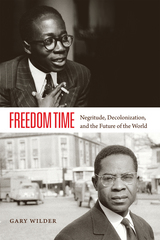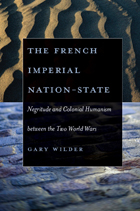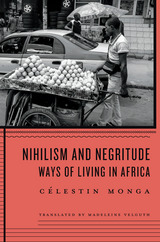

Gary Wilder develops a sophisticated account of the contradictory character of colonial government and examines the cultural nationalism of Negritude as a multifaceted movement rooted in an alternative black public sphere. He argues that interwar France must be understood as an imperial nation-state—an integrated sociopolitical system that linked a parliamentary republic to an administrative empire. An interdisciplinary study of colonial modernity combining French history, colonial studies, and social theory, The French Imperial Nation-State will compel readers to revise conventional assumptions about the distinctions between republicanism and racism, metropolitan and colonial societies, and national and transnational processes.

There are two common ways of writing about Africa, says Célestin Monga. One way blames Africa’s ills on the continent’s history of exploitation and oppression. The other way blames Africans themselves for failing to rise above poisonous national prejudices and resentments. But patronizing caricatures that reduce Africans to either victims or slackers do not get us very far in understanding the complexities and paradoxes of Africa today.
A searching, often searing, meditation on ways of living in modern Africa, Nihilism and Negritude dispels the stereotypes that cloud how outsiders view the continent—and how Africans sometimes view themselves. In the role of a traveler-philosopher, Monga seeks to register “the picturesque absurdity of daily life” in his native Cameroon and across the continent. Whether navigating the chaotic choreography of street traffic or discoursing on the philosophy of café menus, he illuminates the patterns of reasoning behind everyday behaviors and offers new interpretations of what some observers have misunderstood as Africans’ resigned acceptance of suffering and violence.
Monga does not wish to revive Negritude, the once-influential movement that sought to identify and celebrate allegedly unique African values. Rather, he seeks to show how daily life and thought—witnessed in dance and music, sensual pleasure and bodily experience, faith and mourning—reflect a form of nihilism developed to cope with chaos, poverty, and oppression. This is not the nihilism of despair, Monga insists, but the determination to find meaning and even joy in a life that would otherwise seem absurd.
READERS
Browse our collection.
PUBLISHERS
See BiblioVault's publisher services.
STUDENT SERVICES
Files for college accessibility offices.
UChicago Accessibility Resources
home | accessibility | search | about | contact us
BiblioVault ® 2001 - 2024
The University of Chicago Press









